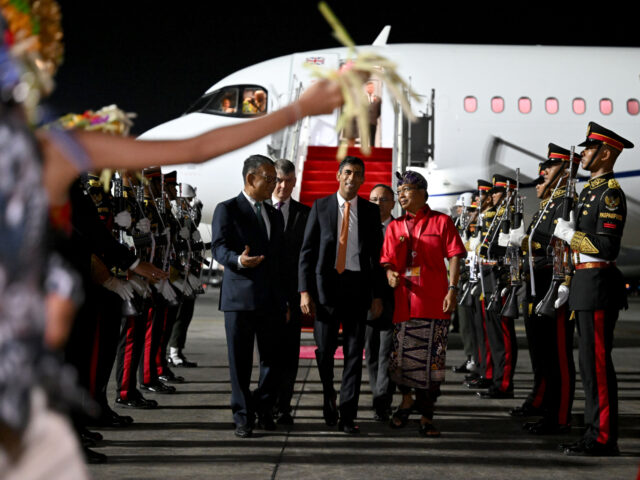Prime Minister Rishi Sunak has outlined a questionable five-point plan to take on Russia as the G20 summit convenes.
The newly-coronated British premier emphasised the fact that Russian president Vladimir Putin is himself skipping the Group of 20 summit in Indonesia this year, suggesting he was doing so in order to avoid facing the proverbial music over the war in Ukraine.
“The man who is responsible for so much bloodshed in Ukraine and economic strife around the world will not be there to face his peers. He won’t even attempt to explain his actions. Instead, he will stay at home and the rest of us will get on with the task at hand,” Sunak began in an article published by The Telegraph — strangely lumping in G20 members like the United Kingdom and the United States, which have strongly backed Ukraine, with the likes of Communist China, Saudi Arabia, India, and Turkey, which have often either taken an ambivalent stance on the war or effectively supported Russia.
Indian Petroleum and Natural Gas Minister Hardeep Singh Puri said on Monday that India feels no “moral conflict” over buying oil from Russia. https://t.co/KKZa3KNWDN
— Breitbart News (@BreitbartNews) November 3, 2022
The five-point plan presented is, on close inspection, fairly thin, proposing such unsurprising moves as “helping the people of Ukraine as their national infrastructure is attacked by drones and missiles” and “supporting the UN secretary-general to keep grain shipments moving in the Black Sea” — supporting the status quo, essentially — before petering out in vaguery.
Sunak proposes, for example, that “we must remain utterly committed to the promotion of free markets and an open global economy in which enterprise drives growth” and secure more trade agreements — even when no research has been done on whether they will actually be good for British workers, apparently — but it is hard to see how this general aspiration is of specific relevance to Russia and its activities.
He also suggests “we must work together with our partners” — the former Goldman Sachs analyst listed these as “governments, the private sector and intentional [sic] financial institutions” — to “provide the financial stability and probity that the international economic situation demands,” which could mean anything, and again appears to have no real link to dealings with Russia.
Most dubiously, Sunak says “we must take urgent action to protect our economic security and bolster our resilience against malign actors… and rapidly transitioning from dependence on energy from countries like Russia” — despite having just squashed plans by his predecessor Liz Truss to lay the groundwork for a fracking industry that might have seriously boosted British energy independence.
Ukraine: Russia Issues 'Warning' that 'Britain Is Too Deep In This Conflict' https://t.co/m9YjfdFJx0
— Breitbart London (@BreitbartLondon) November 5, 2022
In terms of genuine action on the Ukraine war, Sunak pledged that Britain would “continue training Ukrainian troops and providing vital defensive military equipment, like the additional 1,000 air defence missiles and more than 25,000 extreme cold winter kits that I pledged last week,” evidently undeterred by the Russian ambassador to the United Kingdom warning that the British government was already “too deep” in the war in Ukraine — and indeed taking Anglo-Russian relations “up to the line… of no return” in terms of direct hostilities.
Sunak also boasted that under his administration Britain “remain[s] the largest European military donor to Ukraine, delivering £2.3 billion of support this year” — a risky move, considering the growing resentment of a British public labouring under a cost of living crisis, energy crisis, and migration crisis being told they can expect to suffer tax rises, public service cuts, and further erosion of real income in the name of fighting inflation.
One British Volunteer Dead, Another Undergoing Brain Surgery After Clash with Russian Tanks https://t.co/3QCoW73qFi
— Breitbart London (@BreitbartLondon) November 12, 2022

COMMENTS
Please let us know if you're having issues with commenting.